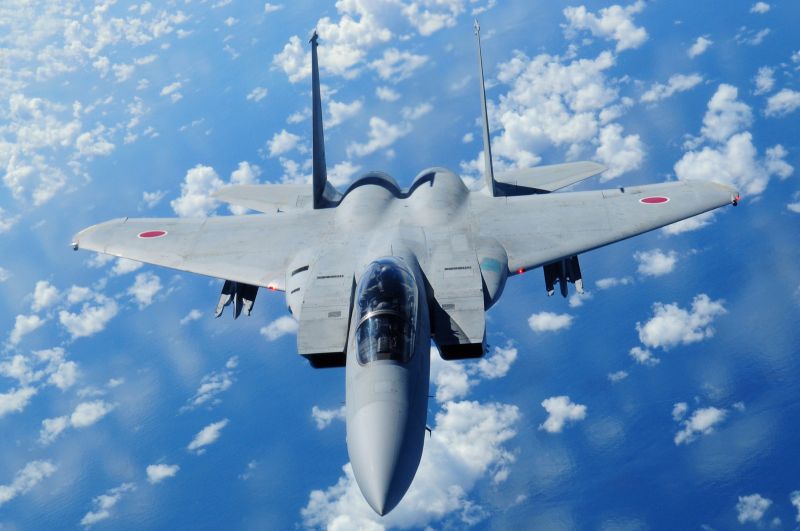China has slammed Tokyo for targeting its military aircraft with “decoy flares” over a waterway near Japan, calling the actions “dangerous and unprofessional”.
Two Japanese F-15s fired the projectiles as the Chinese planes passed through the Miyako Strait between Japan’s Miyako and Okinawa Islands, the defence ministry said in a statement on its website Saturday.

The incident took place Saturday morning as the Chinese planes carried out “routine far seas training”, the statement said, adding the aircraft were in international airspace when the encounter occurred.
“The actions of the Japanese fighters was dangerous and unprofessional and smashed the freedoms of navigation and overflight provided by international law,” it said.
The statement gave no details about the Chinese aircraft.

Contacted by AFP, neither the Japanese defence ministry nor the prime minister’s office could confirm the incident.
In September, China sent more than 40 military planes — including fighters and bombers — through the air space.
At the time, Japan’s defence ministry said it was the first time Chinese fighters had passed over the waterway.
It followed China‘s first military flight, carried out by spy planes, over the Miyako Strait last year.
Japan and China are at loggerheads over a longstanding territorial row in the East China Sea.
That dispute relates to uninhabited islets controlled by Japan known as the Senkakus in Japanese and the Diaoyus in Chinese.
